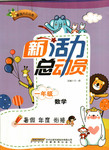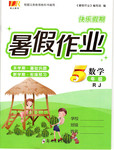题目内容
This story began when I was a child. I was born in 46 . Often we hadn’t enough to eat. When never we had some food, Mother often give me her portion. While she was putting her rice into my bowl, she would say, “Eat this rice, son! I’m not 47 .”
As I grew, Mother her 48 her spare time to 49 in a river near our house; she hoped that from the fish she caught, she could give me a little bit more 50 for my growth. Once she caught just two fish, she made fish soup. While I was eating the soup, Mother sat beside me and ate what was still kept on the 51 of the fish I had eaten. My heart was 52 when I saw it. So I gave the other fish to her but she immediately 53 it and said, “I don’t 54 like fish.”
Then, in order to pay for my 55 , Mother went to a match factory. This helped her get some money to cover my school fees. One wintry night I awoke to find Mother filling the matchboxes by candlelight. 56 I said, “Mother, go to sleep; it’s late; you can 57 working tomorrow.” Mother smiled and said, “Go to sleep, son! I’m not 58 .”
When I had to sit my final examination, mother accompanied me. Mother 59 for me for hours in the heat of the sun. When the bell rang, I ran to 60 her. Mother give me a glass of tea that she had 61 . The tea was not as 62 as Mother’s love. Seeing Mother covered with sweat, I at once gave her my glass and asked her to 63 too. Mother said, “I’m not thirsty!”.
Now , I’m an employer and my 64 now is to work hard and to repay my mother for all the 65 that she gave me.
小题2:A worried B. hungry C. carless D, foolish
As I grew, Mother her 48 her spare time to 49 in a river near our house; she hoped that from the fish she caught, she could give me a little bit more 50 for my growth. Once she caught just two fish, she made fish soup. While I was eating the soup, Mother sat beside me and ate what was still kept on the 51 of the fish I had eaten. My heart was 52 when I saw it. So I gave the other fish to her but she immediately 53 it and said, “I don’t 54 like fish.”
Then, in order to pay for my 55 , Mother went to a match factory. This helped her get some money to cover my school fees. One wintry night I awoke to find Mother filling the matchboxes by candlelight. 56 I said, “Mother, go to sleep; it’s late; you can 57 working tomorrow.” Mother smiled and said, “Go to sleep, son! I’m not 58 .”
When I had to sit my final examination, mother accompanied me. Mother 59 for me for hours in the heat of the sun. When the bell rang, I ran to 60 her. Mother give me a glass of tea that she had 61 . The tea was not as 62 as Mother’s love. Seeing Mother covered with sweat, I at once gave her my glass and asked her to 63 too. Mother said, “I’m not thirsty!”.
Now , I’m an employer and my 64 now is to work hard and to repay my mother for all the 65 that she gave me.
| 小题1: |
|
| 小题3: |
|
| 小题4: |
|
| 小题5: |
|
| 小题6: |
|
| 小题7: |
|
| 小题8: |
|
| 小题9: |
|
| 小题10: |
|
| 小题11: |
|
| 小题12: |
|
| 小题13: |
|
| 小题14: |
|
| 小题15: |
|
| 小题16: |
|
| 小题17: |
|
| 小题18: |
|
| 小题19: |
|
| 小题20: |
|
小题1:A
小题2:B
小题3:C
小题4:C
小题5:B
小题6:D
小题7:A
小题8:C
小题9:D
小题10:A
小题11:B
小题12:C
小题13:D
小题14:A
小题15:D
小题16:A
小题17:B
小题18:B
小题19:C
小题20:D
试题分析:本文描述了在我的成长过程里妈妈给我无微不至的关爱,体现出母爱的伟大和无私。
小题1:A 上下文串联。根据hadn’t enough to eat说明我出生在一个很穷的家庭里。故A正确。
小题2:B 形容词辨析。A担忧B饥饿C粗心D愚蠢;妈妈把她的饭给我吃,说她自己不饿。
小题3:C 短语辨析。A查找B建立C放弃D推动;妈妈把她放弃了自己的休息时间去钓鱼。
小题4:C 上下文串联。根据下文的from the fish she caught可知妈妈在空闲时间去钓鱼了。
小题5:B 名词辨析。A品味B营养C功能D重要性;妈妈给我一些成长所需要的营养。
小题6:D 名词辨析。A肉B碗C盘子D骨头;妈妈不是我留在碗里的鱼骨头吃掉了。
小题7:A 形容词辨析。A感动的B兴奋的C困惑的D惊讶地;我被妈妈的行为所感动。
小题8:C 动词辨析。A怀疑B接受C拒绝D忽视;妈妈拒绝了我的要求,并告诉我她不喜欢吃鱼。
小题9:D 副词辨析。A安静B大部分C清晰D真地;妈妈告诉我她真地不喜欢吃鱼。
小题10:A 名词辨析。A教育B健康C事业D经历;为了付我上学的钱,妈妈去了一家火柴厂。
小题11:B 上下文串联。我看到妈妈很晚还没有睡觉,于是就让她休息。上下文存在着因果关系。
小题12:C 动词辨析。A停止B开始C继续D喜欢;我让妈妈现在去睡觉,明天继续工作。
小题13:D 形容词辨析。A寒冷B悲哀C生病D疲惫;妈妈让我去睡觉,并告诉我说她不累。
小题14:A 动词辨析。A等待B打电话C去D猎取;我在参加考试的时候,妈妈在外面等我。
小题15:D 动词辨析。A问候B帮助C请求D见面;考试结束以后我出去见妈妈。
小题16:A 动词辨析。A准备B买C发现D清除;妈妈让我把她准备好的水喝掉。
小题17:B 形容词辨析。妈妈准备的水不如妈妈给我的爱那么地浓郁。
小题18:B 动词辨析。A改变B喝C扔D注意到;我把杯子给妈妈让她也喝。
小题19:C 名词辨析。A信念B奇迹C梦想D工作;我的梦想就是努力工作汇报妈妈给我的爱。
小题20:D 名词辨析。A食物B未来C水D爱;我的梦想就是努力工作汇报妈妈给我的爱。
点评:本文描述了在我的成长过程里妈妈给我无微不至的关爱,体现出母爱的伟大和无私。
本篇完形设空科学合理,考生很容易从中领会大意,从而下手会比较顺利,从选项中可以看出,本大题主要还是考查了词汇的辨析与运用,但更加注重综合语言能力的运用,需要根据故事情节,了解词汇用法的同时,结合语境,做出准确的判断。

练习册系列答案
 新活力总动员暑系列答案
新活力总动员暑系列答案 龙人图书快乐假期暑假作业郑州大学出版社系列答案
龙人图书快乐假期暑假作业郑州大学出版社系列答案
相关题目